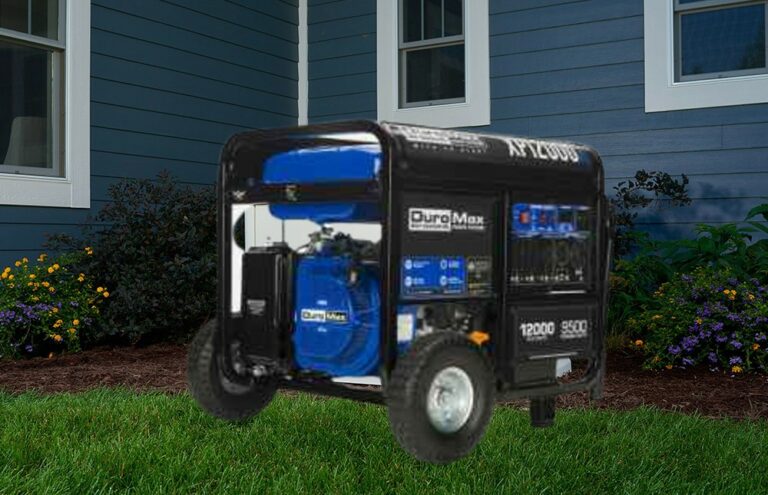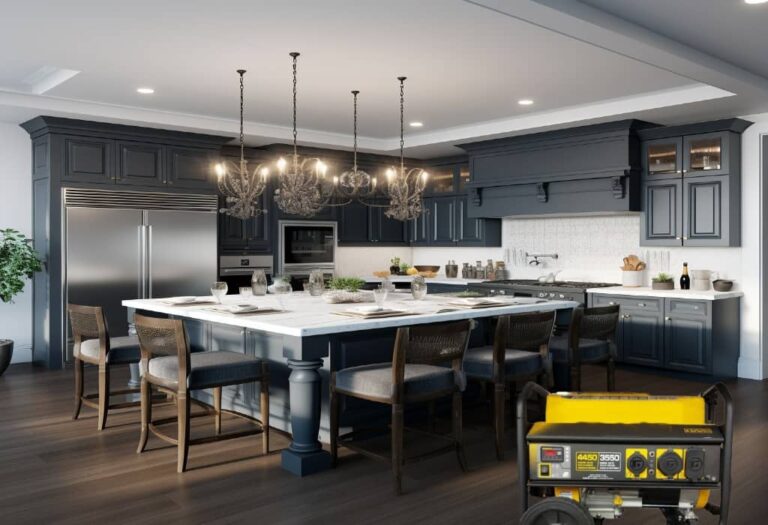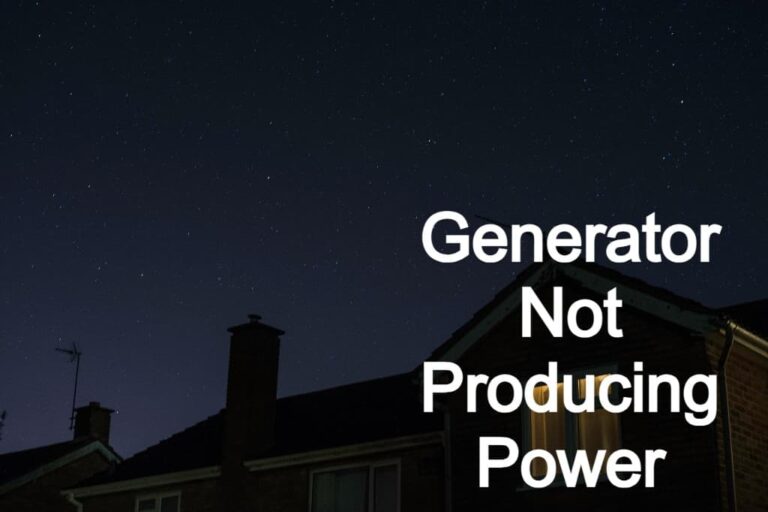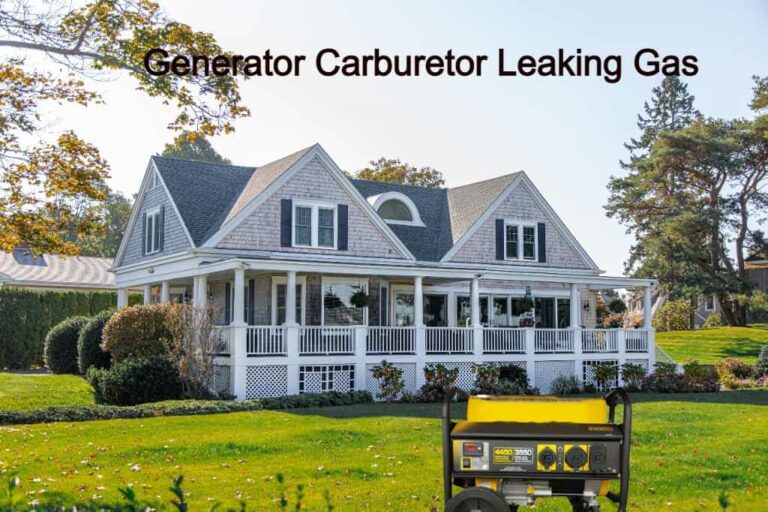What Size Generator to Power a Space Heater?
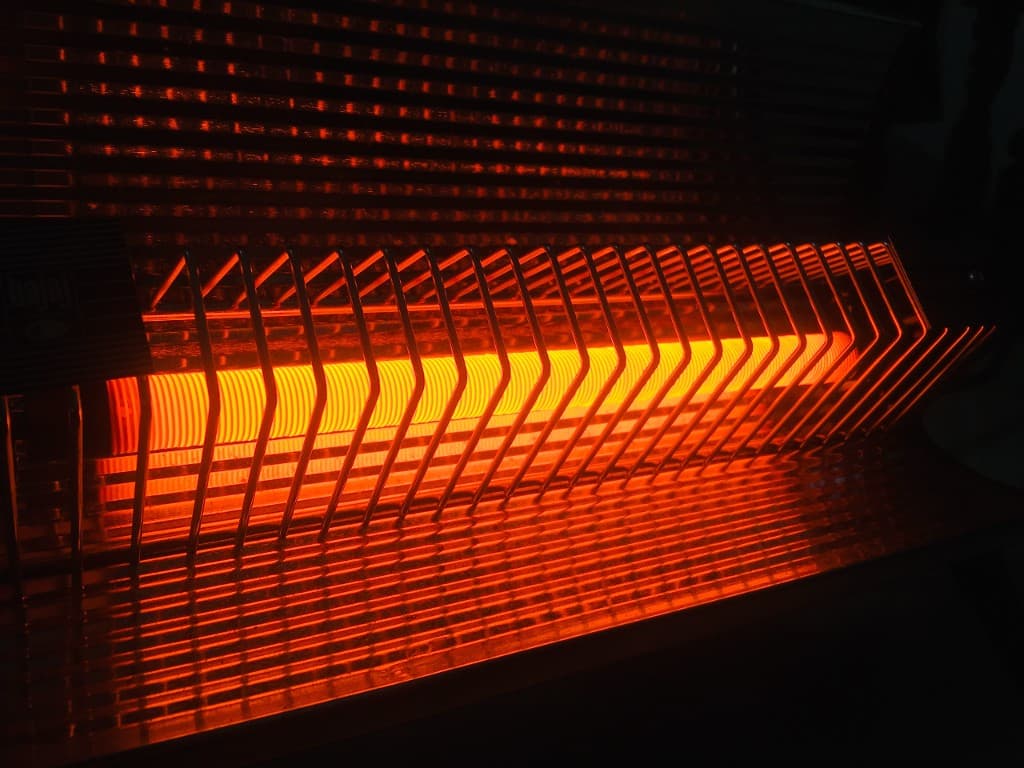
Are you curious what size generator is necessary to power your space heater? Can a 1000 watts generator get the job done? In this piece, we will explore the appropriate generator size for your space heater and offer alternatives for power outages. We will also provide some important safety tips when running a space heater off a generator. Stay tuned to learn how to stay warm and safe during those chilly days.
Now, let’s determine the right generator size for your space heater. Instead of using a 1000-watts generator, it is crucial to consider the wattage requirements of your specific space heater. Space heaters come in various sizes and power ratings, so checking the manufacturer’s specifications for the wattage needed is essential. By doing so, you can ensure that you choose a generator that can handle the power demands of your space heater.
In light of power outages, it is equally important to have a backup plan. While a generator can be a reliable source of power, there are alternatives worth considering. Battery-powered space heaters, for instance, provide a convenient and portable option during power outages. Additionally, investing in insulation and sealing any drafts in your home can help retain heat and reduce the need for excessive heating.
Safety should always be a top priority when running a space heater off a generator. Firstly, placing the generator in a well-ventilated area is crucial to prevent the buildup of toxic fumes. Secondly, ensure that the generator is properly grounded to avoid electrical hazards. Thirdly, never leave a space heater unattended, and keep it safe from flammable materials. These safety measures will help prevent accidents and ensure the well-being of everyone in your home.
To conclude, determining the appropriate generator size for your space heater requires considering the wattage requirements specific to your heater. Additionally, exploring alternative options like battery-powered heaters and improving insulation can provide solutions during power outages. You can enjoy warmth and comfort by following safety tips and guidelines while keeping your home secure. Not only will you stay warm, but you will also have peace of mind knowing that you are prepared for any unexpected power disruptions.
Key Takeaways
Remember that a 1000 watt generator might be sufficient for smaller space heaters, but it’s always wise to check the wattage requirements of your specific heater.
Additionally, consider alternative heating options in case of a power outage and prioritize safety when using a space heater with a generator.
What size generator do you need to run a space heater
To power a space heater, it is essential to determine the appropriate size generator. The generator size will depend on the power requirements of the space heater. Before deciding on the generator size, it is necessary to know the wattage of the space heater. This information can typically be found on the heater’s label or in the owner’s manual.
To calculate the generator size needed, a straightforward equation can be used. Divide the wattage of the space heater by the generator’s rated wattage. For instance, if the space heater is 1000 watts and the generator is rated at 2000 watts, the division would be 1000 divided by 2000, resulting in 0.5.
In this case, a generator at least 0.5 times the size of the space heater would be required. It is advisable to round up to ensure sufficient power to run the space heater safely and efficiently.
Using the correct size generator is crucial to prevent electrical issues or damage to the space heater.
Will a 1000-watt generator run a space heater?
Yes, a 1000 watts generator can operate a space heater. When considering the ability to power a space heater, the generator’s wattage is an important factor to consider. A 1000 watt generator is typically adequate for running most small to medium-sized space heaters.
Space heaters are available in various sizes and power requirements, so it is essential to select a generator that can meet the power needs of your specific space heater. The generator’s wattage rating indicates how much power it can generate. In this case, a 1000 watts generator should be sufficient to operate a standard space heater.
However, it is important to note that the power consumption of the space heater itself can vary. Some space heaters may require more than 1000 watts, particularly if they have additional features such as a fan or multiple heat settings. In such instances, a generator with a higher wattage would be necessary.
To determine the appropriate size generator for your space heater, refer to the wattage rating on the heater’s label or in the user manual. Choosing a generator with a higher wattage rating than the space heater requires is always advisable to ensure a reliable and efficient power supply.
Alternatives To Space Heaters In A Power Outage
Are you looking for alternatives during a power outage? Consider using blankets or layers of clothing to keep warm. Space heaters are a popular choice, but they require electricity. If you can access a generator, you can power a space heater. But what size generator do you need?
Here are some alternatives to space heaters during a power outage:
- Blankets and layers of clothing: One of the simplest and most cost-effective ways to stay warm is to bundle up with blankets or wear multiple layers. This can help trap your body heat and keep you warm.
- Insulated curtains or thermal window coverings can insulate your home and prevent heat loss. They act as a barrier to keep the cold and warm air out.
- Portable propane heaters: These are a great alternative to electric space heaters. They run on propane gas and can provide heat without electricity. Make sure to use them in a well-ventilated area and follow safety precautions.
- Wood-burning stoves or fireplaces can be excellent heat sources if you can access wood or a fireplace. They provide both warmth and a cozy ambiance.
While space heaters can be convenient, there are several alternatives to consider during a power outage. You can stay warm without relying solely on electricity, whether bundling up with blankets, using insulated curtains, or utilizing portable propane heaters or wood-burning stoves.
Safety tips for running a space heater off a generator
Running a space heater off a generator can be perilous without caution. When utilizing a generator to power a space heater, it is imperative to adhere to specific safety guidelines to ensure your safety and the safety of those in your vicinity.
Select the appropriate generator size to supply power to your space heater. It is vital to choose a generator that can accommodate the wattage requirements of your heater. Verify the wattage rating of your space heater and compare it to the generator’s output capacity. Employing an insufficient size generator can overload the system and pose a fire hazard.
Furthermore, always operate the generator outdoors in a well-ventilated area. Generators emit carbon monoxide, a lethal gas that can accumulate rapidly and pose a grave health risk. Never operate the generator inside your dwelling or any enclosed space.
Moreover, avoid directly connecting the space heater to the generator. Instead, employ a robust extension cord to create a safe distance between the two. This will prevent potential heat or sparks from reaching the generator and causing harm.
Lastly, always adhere to the manufacturer’s instructions for the generator and the space heater. These guidelines are designed to ensure safe operation and prevent accidents.
What Size Generator To Run Your Space Heater
To ensure the safe operation of your space heater, it’s essential to select a generator that can adequately meet the wattage requirements. Running a space heater off a generator requires careful thought about the generator’s power output. Here are a few key factors to consider when determining the appropriate generator size for your space heater:
- Determine the wattage of your space heater: Check the manufacturer’s specifications or the label on your heater to find the wattage rating. This information is vital in determining the generator size you’ll need.
- Consider any additional power needs: If you plan on running other devices simultaneously with your space heater, such as lights or a fan, consider their power requirements. This will help you select a generator that can handle the combined load.
- Calculate the total wattage: Add up the wattage of all the devices you plan on running simultaneously. This will give you an idea of the minimum wattage capacity your generator should have.
- Choose a generator with sufficient wattage: Once you have the total wattage, select a generator that can handle at least that amount. Choosing a generator with a higher wattage capacity is always better to ensure smooth operation and prevent overloading.
Tip For Safety While Using Space Heaters On Generator
When using a space heater on a generator, it is crucial to prioritize safety. Keep the area around the heater clear of any flammable materials to avoid potential fire hazards. Place the space heater on a stable surface, away from curtains, furniture, or other items that could catch fire.
Additionally, consider the size of the generator. Ensure that the generator has sufficient power to support the energy requirements of the space heater. Check the wattage of the space heater and compare it to the power output of the generator to prevent damage or malfunctions.
Furthermore, consider the coverage area of the space heater. Different heaters have varying heating capacities, so choose one that adequately warms the intended space. Avoid oversized heaters that consume excessive energy or undersized heaters that struggle to provide sufficient warmth.
Frequently Asked Questions
Are There Any Safety Precautions I Should Take When Using a Space Heater With a Generator?
When using a space heater alongside a generator, it is vital to consider certain safety precautions. It is important to keep the heater safe from any flammable materials while utilizing a carbon monoxide detector to minimize potential risks.
In light of safety, ensuring that the space heater is positioned away from objects that could easily catch fire is crucial. This includes keeping it clear from curtains, furniture, or combustible items. It is equally important to have a well-ventilated designated space for the generator and free from obstructions.
Using a carbon monoxide detector to prevent the accumulation of carbon monoxide, which can be a deadly gas, is highly recommended. This device will alert you if there are any dangerous levels of carbon monoxide in the air, providing an early warning system to protect your well-being.
In addition to these precautions, following the manufacturer’s instructions for the space heater and the generator is also wise. This includes using the appropriate fuel for the generator and ensuring it is properly grounded. Likewise, inspecting the space heater regularly for any signs of damage or malfunction is crucial.
Furthermore, it is necessary to emphasize that using a space heater with a generator should never be indoors. This can lead to a build-up of carbon monoxide, posing a significant risk to your health and safety. Therefore, it is of utmost importance to only operate the generator and space heater in well-ventilated areas, such as open garages or outdoor spaces.
Can I Use a Space Heater With a Generator During a Power Outage?
Yes, you can utilize a space heater with a generator amid a power outage. It is imperative, however, to select a generator that can accommodate the wattage of the heater to avert any potential electrical complications.
What Are Some Alternative Heating Options to Consider During a Power Outage Instead of Using a Space Heater With a Generator?
During a power outage, it is crucial to explore alternative heating options instead of relying on a space heater powered by a generator. One option is a cozy fireplace, which provides warmth and comfort. Additionally, you may want to contemplate using a wood or pellet stove, which uniquely generates heat by burning wood or pellets. Another alternative is a propane heater, which operates on propane gas and can efficiently warm up your space. Lastly, thermal blankets can be an equally important tool to keep yourself snug during a power outage. It is important to mention that these alternative heating options can help you stay warm and comfortable uniquely and efficiently. Delving into these options, it becomes clear that there are various alternatives. Similarly, it is worth noting that these options provide a comparative advantage over using a space heater with a generator. Furthermore, they can be used with other methods, such as wearing warm clothing or bundling up in blankets. Moreover, it is crucial to prioritize safety; therefore, always ensure that you follow proper guidelines and precautions when using any heating equipment. In conclusion, these alternative heating options provide a unique and efficient way to stay warm during a power outage and offer a safe and reliable solution.
How Much Fuel Does a Generator Typically Consume When Powering a Space Heater?
When powering a space heater, a generator typically consumes fuel based on wattage and runtime. To determine the appropriate generator size, consider the wattage of the space heater and calculate the fuel consumption accordingly.
Can I Run Multiple Space Heaters off a Single Generator Simultaneously?
It is possible to operate multiple space heaters simultaneously using a single generator. Nevertheless, it is important to note that each space heater has specific power requirements. Therefore, it is imperative to ensure that your generator can accommodate all the heaters’ combined power load.
It is also worth mentioning that when considering the operation of multiple space heaters, one must take into account the unique power needs of each unit. Additionally, it is crucial to factor in any other appliances or devices that may be utilizing electricity simultaneously.
Furthermore, it is important to consider your generator’s power capacity and the space heaters’ combined power consumption. If the generator is not equipped to handle the total power demand, it may become overloaded and fail to function correctly.
Conclusion
So there you have it, Now you know the appropriate size generator you’ll need to power your space heater.
Remember, a 1000 watts generator might be adequate for smaller space heaters, but it’s always wise to check the wattage requirements of your specific heater.
Additionally, consider alternative heating options in case of a power outage, and prioritize safety when using a space heater with a generator.


